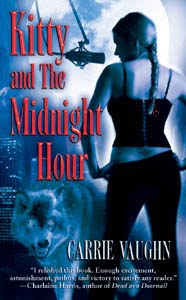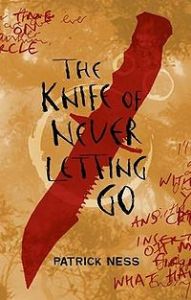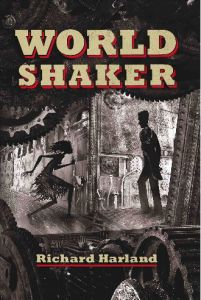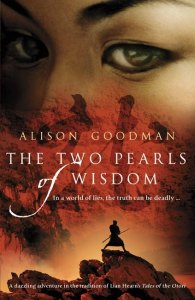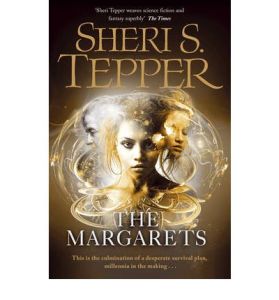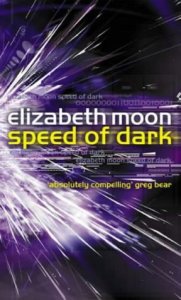I went to see Avatar.
The short review: Wow. Just wow.
The longer review:
I’ve heard a lot of comments on the “predictability” of the movie. Often this is mentioned in a sad way, along the lines of “but he could have done so much more if the story wasn’t so predictable”. Sometimes it’s harsher, as in “pretty to look at, but such a hokey plot”.
But I’m thinking that “predictable” isn’t such a bad thing.
I’m thinking, for instance, every time I pick up a fantasy novel I know, in a larger sense, what’s going to happen. The protag will face many dangers and adventures but in the end good will triumph over evil, more or less, depending on the level of sophistication of the particular book. People who read crime novels know the crime will be solved and the criminal brought to justice by the end. In every romance novel the hero and heroine will overcome their differences and find love by the end.
I like knowing there’s a feelgood ending coming. Predictability in this sense is a good thing. There’s nothing worse than thinking you’re reading a romance and three-quarters of the way through the book the heroine kills the hero and goes off to become a nun to atone for the crime instead. (Not that I ever have read such a book, but you know what I mean. People have expectations they bring to the reading experience.)
Movies are no different. Nobody goes to see a romantic comedy expecting exploding cars and a high body count. Nobody thinks the characters in an animated movie are going to sit around drinking beer and moaning about property prices.
Occasionally there’ll be a “cheater” movie like The Sixth Sense or The Usual Suspects which produces a twist ending that changes everything you thought you knew about the movie you just saw. Such movies are a delight but extremely rare. And I don’t think anyone was expecting such a stunt from Avatar.
If you saw the trailer you knew exactly what to expect. Big bad business wants to pillage and destroy natural beauty and resources, native greenies (blueys?) resist, led by soldier-with-a-conscience who changes sides. Soldier goes native, romance ensues. Plus there are all the characters and elements you’d expect – the power-mad warmonger, the “voice of reason” scientist, the ruthless businessman, the battles, the explosions, the “let’s humiliate the new guy” scenes as the hero tries to learn the native ways …
I suppose that’s the “predictability” people mean. Same old characters in the same old situations we’ve seen so many times before. It really is a lot like Dances With Wolves in many ways, though more upbeat. I can see why some are asking why it always has to be the white guy who has to become a better native than the natives themselves and save everybody. Why can’t the natives save themselves for a change?
I wonder if this is why they made the hero a paraplegic, to head off these accusations of white privilege. Yes he’s a white male, but he’s in a wheelchair, so he’s also a member of a minority.
So … predictable on a larger scale: yes, but that’s not a bad thing. Predictable on the smaller scale of the plot line: yes as well. Which may or may not be a problem, depending on your expectations. Me, I like a surprise as much as the next person, but I wasn’t going to see this movie for the storyline.
I was there for the magic, and I got that in spades.
People who know about such things have talked about the groundbreaking effects, the historical cinematic significance of this movie. What that means is that when the hero took a corner at dizzying speed through the treetops I felt the world tilt. Everything seemed so real I’m still thinking about it and feeling disappointed that it doesn’t really exist somewhere. There was no sense that you were watching actors dressed up in funny outfits, the way there is when you watch Star Wars. There was no feeling that the exotic beasts didn’t quite come together. I could never quite believe in the wargs from The Lord of the Rings movies, for instance, much as I loved those movies. They were a little jerky, somehow not quite “real” enough for me. Not so with the denizens of Pandora’s forests.
The thing that this movie pulled off better than any I’ve ever seen, and the reason I enjoyed it so much, was that elusive “sense of wonder”. Watching it is like being a child in fairyland, enveloped in a magical dream. Admittedly things in fairyland don’t eat you quite as much as things do on Pandora, but wow. Just wow. And so I’m back to the short version of my review.
It was such a visual treat. It’s an unashamedly pretty movie. The Lord of the Rings movies were beautiful, but in a grown-up grey and grungy way. Avatar can do majestic too, but in glorious colour, full of ultraviolet delights and gorgeous plants and creatures. Even the blue people are beautiful. And that Hollywood tape! Man, I wish I knew how the female lead kept her necklet arrangement plastered so cunningly to her breasts through every death-defying leap and battle scene.
So I was dazzled and delighted, but didn’t entirely lose my objective senses. Some minor plot holes annoyed me, though not enough to stop me loving the movie. Naming the McGuffin* “unobtainium” seriously irked me – come on, guys, if you can’t take yourselves seriously, no one else will – but again, not enough to stop me loving it. Having a McGuffin in the first place, ditto.
It had flaws, but none of them were that bad. And what it got right was so amazing that I’d go see it again tomorrow. In 3D. On the biggest screen possible.
There’s a scene late in the movie where we see the paraplegic hero in shorts for the first time. His legs are wasted, as you’d expect. I spent quite some time wondering how they’d managed to make the actor’s legs look like that. Were they someone else’s legs superimposed on his body? Eventually it occurred to me how stupid I was being. I’d never questioned the entire alien world or the 12-foot tall blue people, and here I was wondering how they could make a healthy guy’s legs look wasted.
It’s that real. You’re really in this incredible, beautiful place. You can’t believe it’s just a movie. And even though it was a long one, I didn’t want it to end. I wanted to stay immersed in this amazing world.
And that’s what every creator wants – to give their readers or viewers that total immersion in their creation. For others to believe, for a couple of hours, that what they have imagined is real, that big business doesn’t always win, that the guy will get his girl and that blue people have the best Hollywood tape in the business.
*McGuffin: some object that doesn’t do anything plot-wise other than motivate the characters





